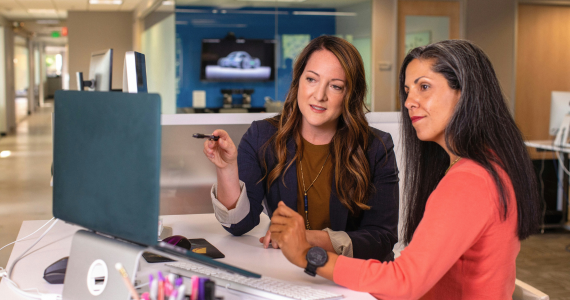Because more than 4.5 million Australians won’t have sufficient super or other investments on which to retire, many face the prospect of having to work far longer than they might once have thought.
Being indefinitely stuck in a job you can’t stand certainly isn’t ideal. But widespread skills and labour shortages mean you at least have a reasonable chance of dodging the unemployment scrap heap.
However, an alarming number of small business owners are in a worse situation.

According to the Australian Small Business and Family Enterprise Ombudsman, despite working longer hours the majority are earning less than their own employees. Forty-three percent of small businesses aren’t even making a profit.
The Australian Government defines being “mature age” as any of the nation’s workers aged over 45, but most employment retraining initiatives are mainly aimed at those in their 50s and beyond.
In general, they’re geared to people who have lots of experience in the workforce and need to adapt their existing skills to stay in it, which with the rising cost of living, high interest rates, skyrocketing rental prices and housing costs, could be for quite some time.
Transformation or Groundhog Day?
But are you willing to keep doing the same as what you’ve pretty much always done?
If you’re treading water in career limbo, what options do you have? Unfortunately, waking one morning and saying, “I think I’ll become a lawyer!” might be impractical.
The obvious question to answer is: “Why am I thinking like this?”
There are numerous programs designed to upskill people (of all ages) to help them stay relevant.
Of course, with ‘ageism’ in the workplace unabating, stereotypes persist.
Mature age workers cost more and are less flexible. They’re also more likely to spit the dummy, be resistant to change, and be injury prone. The list goes on.
However, career reinvention through professional development will likely be less costly, stressful and time-consuming than trying to reincarnate in a new sector.
With that said, many have done it and never looked back. Colonel Sanders didn’t start the Kentucky Fried Chicken (KFC) brand until he was 62, Ray Kroc opened his first McDonald’s at 52, and Raymond Chandler’s first book, The Big Sleep, wasn’t published until he was 51.
Don’t lose touch with reality
It’s a fact, though, that a mid-life career change will usually impact personal income.
Being realistic about probable cashflow — both during retraining and the years following — is vital.
Do you want to adjust your current lifestyle significantly, possibly to the extent of having to downsize your home?
If you can’t afford to leave your current job and don’t have to — again, why would you want to? Is it because of the work itself, the working environment, or a bit of both?
The case for a potentially risky and expensive attempt at pulling off a mid-life career change might not be as compelling if you stop to consider alternative opportunities in your current organisation.
For example, could you create a new niche for yourself, or even explore secondment to a different area of the business?
Assess your appetite for change
Over-50s need to think about things a bit differently.
What would you want to do if you weren’t doing what you’ve been doing for the last 30-plus years?
Once you’ve identified what you wished you’d started doing in your 20s, look long and hard at the viability of that idea today.
In particular, its growth potential and the key trends that are shaping and changing it.
One option might be franchising. As the saying goes, it’s a way to be “in business for yourself, but not by yourself”.
But what if you have your own SME and are treading water or worse, staring down the barrel of bankruptcy?
“It really depends on whether you’re willing to fundamentally change the business model,” says registered liquidator and partner at Chifley Advisory, Henry Kwok. “It may be that a change will fix the problem.”
On the other hand, if reinventing a business or starting a brand-new career when you’re over 50 seems too hard, then chances are it probably is.
However, as someone once said: “If you always do what you’ve always done, you’ll always get what you’ve always got.”
Also, according to a t-shirt recently spotted: “It’s not how old you are — it’s how you are old.”
Source: MYOB February 2024
Reproduced with the permission of MYOB. This article by was originally published at https://www.myob.com/au/blog/over-50-and-over-the-hill-discover-your-appetite-for-change/
Important:
This provides general information and hasn’t taken your circumstances into account. It’s important to consider your particular circumstances before deciding what’s right for you. Although the information is from sources considered reliable, we do not guarantee that it is accurate or complete. You should not rely upon it and should seek qualified advice before making any investment decision. Except where liability under any statute cannot be excluded, we do not accept any liability (whether under contract, tort or otherwise) for any resulting loss or damage of the reader or any other person.
Any information provided by the author detailed above is separate and external to our business and our Licensee. Neither our business nor our Licensee takes any responsibility for any action or any service provided by the author. Any links have been provided with permission for information purposes only and will take you to external websites, which are not connected to our company in any way. Note: Our company does not endorse and is not responsible for the accuracy of the contents/information contained within the linked site(s) accessible from this page.


